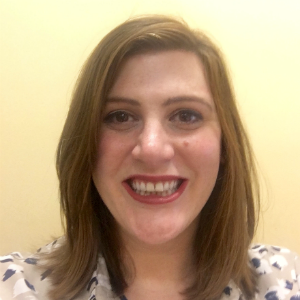
Career progression
1. Medicine (+ intercalated BSc)
2. MRCP + core medical training
3. Registrar in clinical pharmacology
4. PhD
5. Clinical academic
Emma is a ST4 Clinical Pharmacology and Therapeutics/ MRC Clinical Research Fellow at NHS Lothian/University of Edinburgh
What do you do? And what is a typical week for you?
I’m an ST4 dual accrediting in clinical pharmacology and general medicine (essentially halfway through my training to become a consultant in clinical pharmacology). A typical week in clinical pharmacology training is fairly amorphic in comparison to other clinical specialties; no week is the same!
This week I have been involved with local medicine management (I chair the Formulary Committee in my region); on call for toxicology (ward rounds within our specialist ward and providing telephone advice nationally through the National Poisons Information Centre); leading a clinical governance project aimed at improving clinical care of patients with capacity issues; working as a researcher for a phase 1 clinical trial to ascertain the safety of a new drug for paracetamol poisoning; formally teaching on the undergraduate curriculum; and driving forward my own research in basic science (this week, mainly advising PhD students and lots of pipetting for a clinical biomarker study).
Next week, I’m leading the nightshift team as the on call medical registrar in a busy teaching hospital; so all change!
What qualifications and experience do you have?
I completed my clinical undergraduate (MBChB and intercalated BSc) at the University of Glasgow and practised medicine there during my 2-year foundation programme. I subsequently moved to Edinburgh in 2010, completing my MRCP and core medical training. I then successfully applied for a registrar post in Clinical Pharmacology and left my programme after ST3 to complete a PhD. I’ve recently returned to clinical practice and aim to apply for a clinical lectureship following my viva.
What’s the most interesting aspect of your job?
Clinical pharmacology is the best job in the NHS. It allows me to pursue diverse interests throughout the entire course of my career and affords me the freedom to develop my own interests in clinical practice and research. Essentially, I can answer my own questions while improving patient care!
What are your research interests?
My PhD is in basic, fundamental research, investigating novel signalling mechanisms that affect the kidney in heath and illness. An off-shoot of this work meant I also interrogate the role that novel biomarkers may play in predicting morbidity. Both lines of enquiry directly feed into translational medicine with the potential to affect therapeutics and change clinical practice.
I’m also interested in rational prescribing. Over recent years, healthcare interventions have become more complex and consequently, the balance of benefit, risk and uncertainty for an individual has become more nuanced. During this dawn of personalised medicines, clinical pharmacologists are vital to ensure effective prescribing for an individual, while maintaining equitable use of our finite resources at a societal level. I am heavily involved in medicines management, clinical trials and governance projects attempting to better utilise existing therapeutics.
What one piece of advice would you give to someone seeking a career in clinical pharmacology?
Have an enquiring mind. Clinical pharmacology is a diverse specialty; no 2 clinical pharmacologists have the same career. This can be overwhelming as a junior registrar when you suddenly move from a service provision model of training to juggling multiple projects. Exude enthusiasm, get stuck in to what’s happening locally, push your own agenda and always ask questions; you have a great opportunity to drive change at multiple levels in clinical practice and research.
There is room for all interests in clinical pharmacology; from those at the hospital front door in toxicology, to medicine management, through to laboratory bench-top research; there is no reason why you can’t try it all!